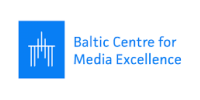Junior Researcher P. Lenčiauskienė: “School should become a place where students learn to live in virtual space”
In an ever-changing digital and media environment, it is essential to foster media and information literacy among the younger generation, and to reinforce the habit of careful information consumption through critical thinking. In order to find out how young people from different Lithuanian schools behave in the digital space, what are their skills and values, Junior Researcher Patricija Lenčiauskienė conducted a study “Digital Literacy and Conscious Use of Information in the Changing Media Environment”.
“In today’s ever-changing media environment, it is important to analyse the skills needed by young audiences and to promote the development of an informed young person in the information space. Therefore, with this study I aimed to find out what is the responsibility of the young person in this process and how digital literacy can become a strength for young people”, – says P. Lenčiauskienė.
According to her, the study provided a better understanding of how different regions and schools contribute to the development of digital literacy among young people, as well as students opinions and knowledge about digital literacy.
Discussions with students in grades 9–12 focused on three main topics: the young person experience of the media environment, disinformation and manipulation on the internet, and norms of behaviour, ethics and values in the media environment. Students discussed how they live their lives in the virtual world, what is important, relevant or worrying to them. They also discussed how young people recognise and react to false information and perceive norms of behaviour online.
According to P. Lenčiauskienė, Junior Researcher, young people actively participated in the discussions and emphasized that talking about digital literacy is very important, especially when society is becoming increasingly digitalised. Recognising trustworthy sources of information and dealing with false information are essential skills, and school should become a place where young people learn to live in a virtual world.
When discussing their experiences on social networks, the young people interviewed said that “TikTok” is the most used platform, not only to find entertaining content, but also to use it for educational purposes and to learn something new. “Most of the videos on “TikTok” are funny and informative – for example, about physics or chemistry – which makes it useful for learning, not just for entertainment,” said the interviewed students.
When it comes to false information, young people highlighted the importance of distinguishing between truth and lies, using advice from friends or reliable sources. “Personally, I very rarely come across lies, so it’s easy for me to distinguish between what is a lie and what is not,” said one participant. Young people also think that “LRT is a reliable source because there are few scandals and the information is based on facts.”
However, the survey also revealed some knowledge gaps: only a small proportion of students were able to name several journalists and reliable sources of information. While young people said they were confident in their ability to discern information, often the platforms and sources they choose, such as “Instagram” news in video format, do not guarantee the accuracy or reliability of information. This shows that many young people live in their own information bubbles, where they judge what to believe and expect based on the people around them, their friends, and their attitudes towards information.
The study found that young people used to the “TikTok” video format feel that journalistic content does not always meet their expectations. “Journalism lacks videos and positive news that is interesting for young people. Information about people we care about,” the young people said.
Students identified truthfulness and authenticity as values, and faking and unreliable sources as undesirable. “Nowadays we see diversity in social networks. You don’t want to be untrustworthy to yourself and your friends, and it’s important to be ethical and not to hurt others,” said the students.
When discussing the responsibility for media and information literacy education, young people emphasized the important role of parents and schools. “At home, from an early age, in kindergarten, parents must also teach about media,” the students said. Most of them agreed that media and information literacy initiatives should be integrated into existing lessons, rather than being presented as an additional subject.
“The study shows that young people’s views and experiences are crucial to the analysis of digital literacy. The young people who took part in the study feel a strong need to talk about life in the media and would like to be taught about it as early as possible,” says P. Lenčiauskienė.
The information gathered during the research will be used in P. Lenčiauskienė’s scientific dissertation and in a forthcoming scientific publication, with the plans to continue the research on this topic in scientific projects in the future.
Text is written by Austėja Vaičiulevičiūtė







